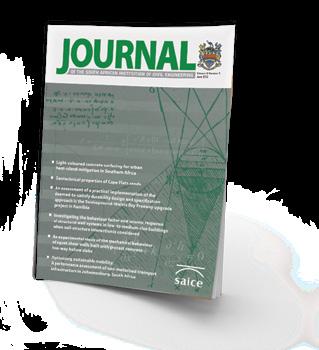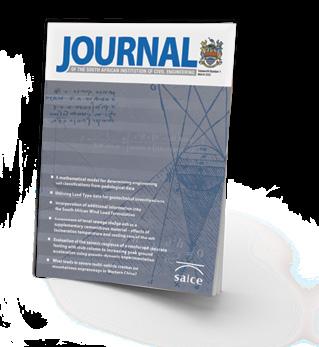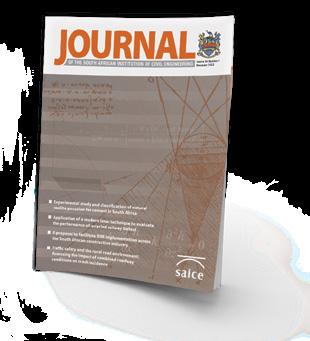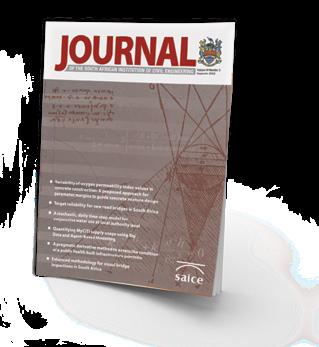
1 minute read
JOURNAL SAICE
The publication of peer-reviewed technical research papers on civil engineering remains one of SAICE’s core functions, as it consistently adds to the body of civil engineering knowledge of which the Institution, as a learned society, is the keeper. The forerunner of SAICE was established in 1903 precisely to share civil engineering knowledge and experience. Those early meetings in fact consisted mainly of papers being presented to and discussed by fellow engineers.
Accreditation
Advertisement
The Journal of the South African

Institution of Civil Engineering , which appears quarterly in March, June, September and December, is internationally accredited by Thomson Reuters Web of Science. The journal is also accredited by SciELO (Scientific Electronic Library Online) and hosted on its website, which is an open-access platform for scientific journals. The South African arm of SciELO is managed by the Academy of Science of South Africa (ASSAf) under the auspices of the Department of Science and Technology. These two accreditations automatically ensure accreditation by the Department of Higher Education and Training (DHET).

In Demand
The online visibility of SAICE’s journal continues to attract considerable interest. Since the journal’s inclusion on the SciELO website in 2010, for example, SAICE journal papers have been downloaded from that particular site approximately 950 000 times (by the end of September 2022). In addition, the journal is hosted on the SAICE and Sabinet websites, thereby further enhancing its local and international visibility.
It has now become compulsory for journals accredited by SciELO to register with the Directory of Open Access Journals (DOAJ). This would also ensure continued accreditation of the SAICE journal by the DHET. Preparations are in progress to apply for registration with the DOAJ during the course of 2023.
Expert Reviewing
The production of the journal is funded by membership fees, while peer-reviewing and assessment of submitted papers are done on a voluntary basis by an expert team of moderators and reviewers, currently under the leadership of Dr Peter Day as Editor-in-Chief. We thank all our reviewers and moderators sincerely for the many hours they have thus far spent on this very important work.









